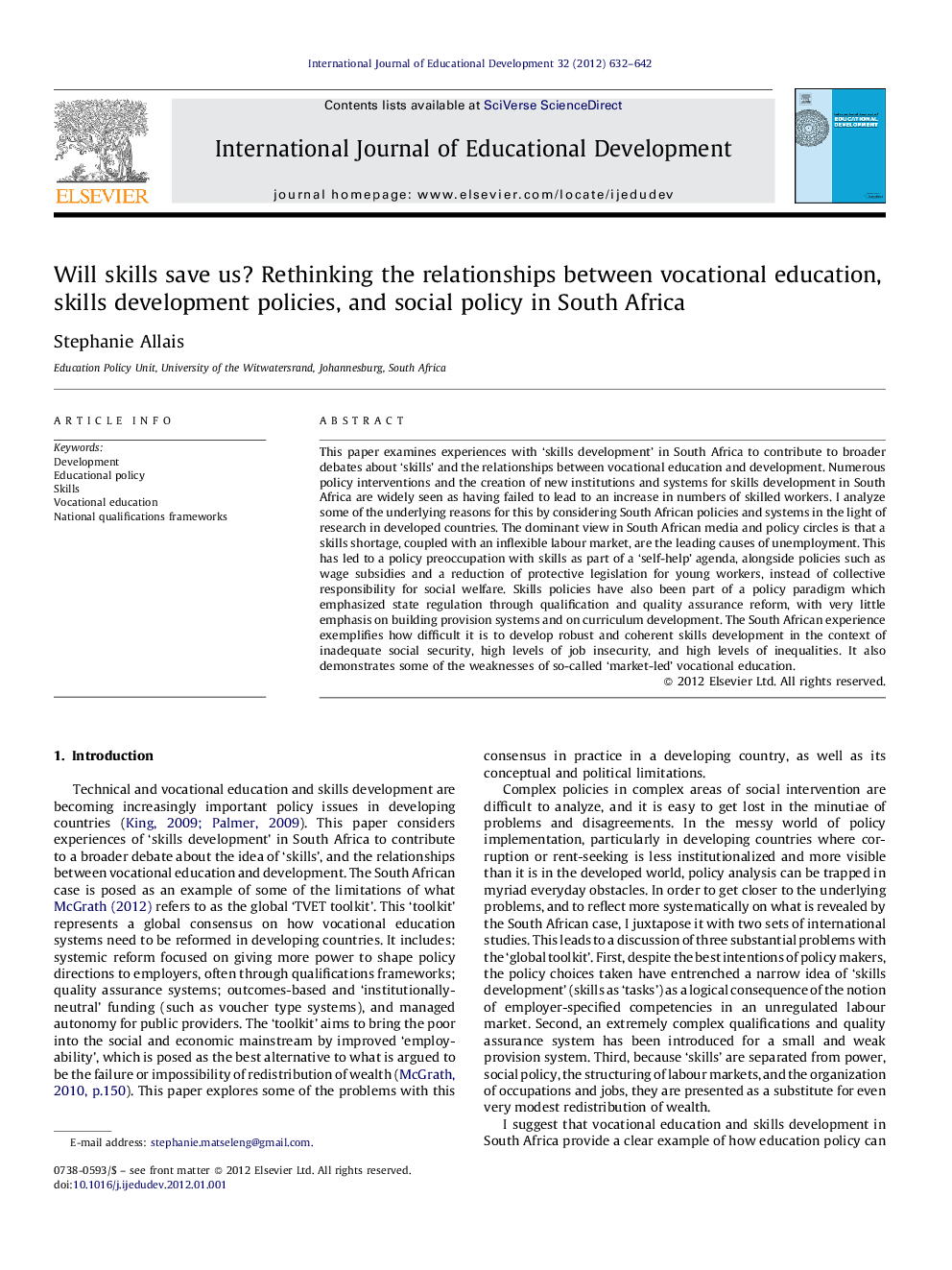| Article ID | Journal | Published Year | Pages | File Type |
|---|---|---|---|---|
| 356201 | International Journal of Educational Development | 2012 | 11 Pages |
This paper examines experiences with ‘skills development’ in South Africa to contribute to broader debates about ‘skills’ and the relationships between vocational education and development. Numerous policy interventions and the creation of new institutions and systems for skills development in South Africa are widely seen as having failed to lead to an increase in numbers of skilled workers. I analyze some of the underlying reasons for this by considering South African policies and systems in the light of research in developed countries. The dominant view in South African media and policy circles is that a skills shortage, coupled with an inflexible labour market, are the leading causes of unemployment. This has led to a policy preoccupation with skills as part of a ‘self-help’ agenda, alongside policies such as wage subsidies and a reduction of protective legislation for young workers, instead of collective responsibility for social welfare. Skills policies have also been part of a policy paradigm which emphasized state regulation through qualification and quality assurance reform, with very little emphasis on building provision systems and on curriculum development. The South African experience exemplifies how difficult it is to develop robust and coherent skills development in the context of inadequate social security, high levels of job insecurity, and high levels of inequalities. It also demonstrates some of the weaknesses of so-called ‘market-led’ vocational education.
► Analysis of South Africa ‘skills’ policies reveals limitations of global policy trends. ► Employer-specified competencies in a casualized labour market led to a narrow notion of skills. ► Complex qualifications and quality assurance systems govern a small, weak provision system. ► ‘Skills’ are presented as a substitute for even very modest redistribution of wealth. ► These all work against the possibility of achieving improved levels of education and skills.
